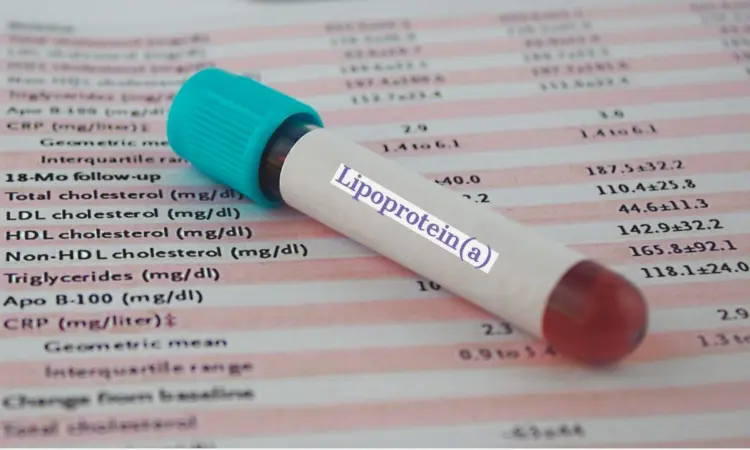- Home
- Medical news & Guidelines
- Anesthesiology
- Cardiology and CTVS
- Critical Care
- Dentistry
- Dermatology
- Diabetes and Endocrinology
- ENT
- Gastroenterology
- Medicine
- Nephrology
- Neurology
- Obstretics-Gynaecology
- Oncology
- Ophthalmology
- Orthopaedics
- Pediatrics-Neonatology
- Psychiatry
- Pulmonology
- Radiology
- Surgery
- Urology
- Laboratory Medicine
- Diet
- Nursing
- Paramedical
- Physiotherapy
- Health news
- Fact Check
- Bone Health Fact Check
- Brain Health Fact Check
- Cancer Related Fact Check
- Child Care Fact Check
- Dental and oral health fact check
- Diabetes and metabolic health fact check
- Diet and Nutrition Fact Check
- Eye and ENT Care Fact Check
- Fitness fact check
- Gut health fact check
- Heart health fact check
- Kidney health fact check
- Medical education fact check
- Men's health fact check
- Respiratory fact check
- Skin and hair care fact check
- Vaccine and Immunization fact check
- Women's health fact check
- AYUSH
- State News
- Andaman and Nicobar Islands
- Andhra Pradesh
- Arunachal Pradesh
- Assam
- Bihar
- Chandigarh
- Chattisgarh
- Dadra and Nagar Haveli
- Daman and Diu
- Delhi
- Goa
- Gujarat
- Haryana
- Himachal Pradesh
- Jammu & Kashmir
- Jharkhand
- Karnataka
- Kerala
- Ladakh
- Lakshadweep
- Madhya Pradesh
- Maharashtra
- Manipur
- Meghalaya
- Mizoram
- Nagaland
- Odisha
- Puducherry
- Punjab
- Rajasthan
- Sikkim
- Tamil Nadu
- Telangana
- Tripura
- Uttar Pradesh
- Uttrakhand
- West Bengal
- Medical Education
- Industry
Unlocking the Link: Elevated Lp(a) Levels and ASCVD Risk in Patients with Diabetes

USA: Higher lipoprotein (a) levels are associated with an increased atherosclerotic cardiovascular disease (ASCVD) risk, including in patients with diabetes in a large US pooled cohort, a recent study published in the Journal of the American College of Cardiology has shown.
"The heightened risk with Lp(a) was observed in women and men, in non-Black and Black participants, and in those at low-intermediate and high risk for cardiovascular disease (CVD) over more than 20 years of follow-up," the researchers reported. Among patients with diabetes mellitus, increases in Lp(a) were linked to an even greater risk of CV events.
ASCVD, characterized by the buildup of plaque in arterial walls, stands as a leading cause of mortality and morbidity worldwide. Individuals with diabetes face a disproportionately higher risk of ASCVD, compounding the already formidable challenges posed by their underlying condition. Against this backdrop, understanding the role of Lp(a) assumes paramount importance.
Lp(a), a unique lipoprotein subclass, has garnered attention for its potential role in atherogenesis. Its structure, consisting of an LDL-like particle linked to apolipoprotein(a), sets it apart from traditional lipid markers.
As noted above, Lp[a] is a causal genetic risk factor for atherosclerotic cardiovascular disease. However, long-term follow-up data from large U.S. population cohorts are limited. Considering this, Nathan D. Wong, Division of Cardiology, University of California—Irvine, Irvine, California, USA, and colleagues aimed to examine the relationship of Lp(a) with ASCVD outcomes in a large, pooled, multi-ethnic U.S. cohort.
The study included data on Lp(a) and ASCVD outcomes from 5 U.S. prospective studies: ARIC (Atherosclerosis Risk In Communities), FHS-OS (Framingham Heart Study-Offspring), JHS (Jackson Heart Study), CARDIA (Coronary Artery Risk Development in Young Adults), and MESA (Multi-Ethnic Study of Atherosclerosis).
Lp(a) levels were classified based on cohort-specific percentiles. Multivariable Cox regression related lipoprotein (a) with composite incident ASCVD events by risk group and diabetes status.
27,756 persons without previous ASCVD who were aged 20 to 79 years were included in the study, including 55.0% women, 35.6% Black participants, and 7.6% patients with diabetes, with a mean follow-up of 21.1 years.
The study led to the following findings:
- Compared with Lp(a) levels <50th percentile, Lp(a) levels in the 50th to <75th, 75th to <90th, and ≥90th percentiles had adjusted HRs of 1.06, 1.18, and 1.46, respectively for ASCVD events.
- Elevated Lp(a) predicted incident ASCVD events similarly by risk group, sex, and race or ethnic groups, but more strongly in patients with vs without diabetes, with HRs for Lp(a) levels ≥90th percentile of 1.92 and 1.41, respectively.
- Lp(a) also individually predicted revascularization, myocardial infarction, stroke, and coronary heart disease death, but not total mortality.
These new data indicate that Lp(a) is an “equal opportunity risk factor across several demographic and clinical categories,” Gregory G. Schwartz, University of Colorado School of Medicine, Aurora, wrote an accompanying editorial.
Regarding the guidelines, Schwartz also believes the US approach of Lp(a) measurement only in select patients might be too restrictive, including the recommendation only to screen in women with hypercholesterolemia. “Current Canadian and European guidelines that recommend testing in most adults would appear to be supported by the current findings,” he states.
Reference:
Wong ND, Fan W, Hu X, et al. Lipoprotein(a) and long-term cardiovascular risk in a multiethnic pooled prospective cohort. J Am Coll Cardiol. 2024;83:1511-1525.
Dr Kamal Kant Kohli-MBBS, DTCD- a chest specialist with more than 30 years of practice and a flair for writing clinical articles, Dr Kamal Kant Kohli joined Medical Dialogues as a Chief Editor of Medical News. Besides writing articles, as an editor, he proofreads and verifies all the medical content published on Medical Dialogues including those coming from journals, studies,medical conferences,guidelines etc. Email: drkohli@medicaldialogues.in. Contact no. 011-43720751


